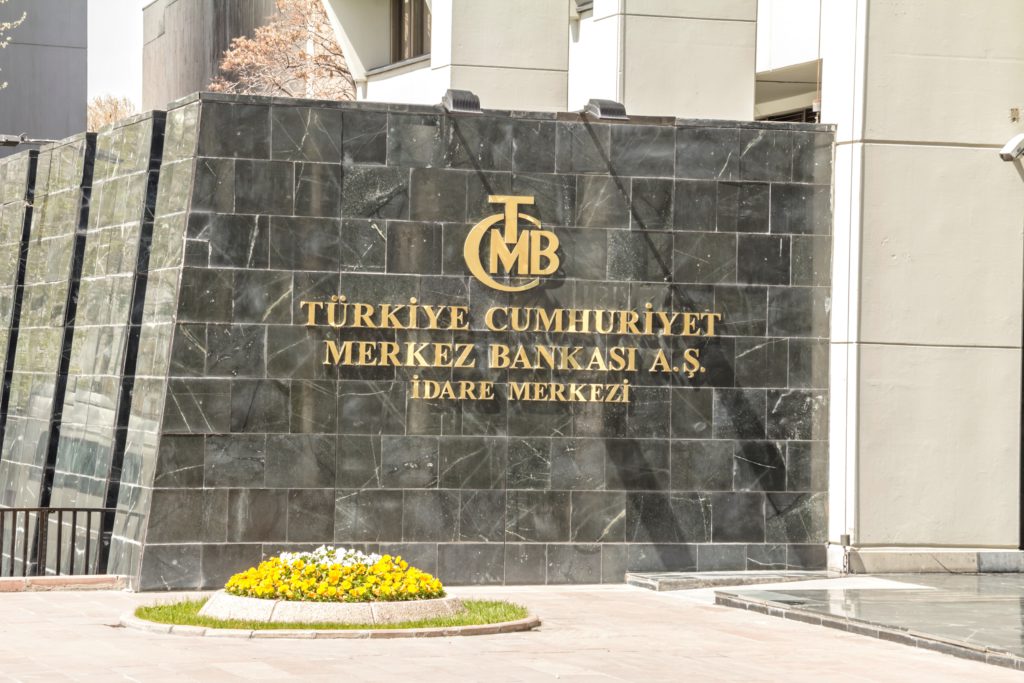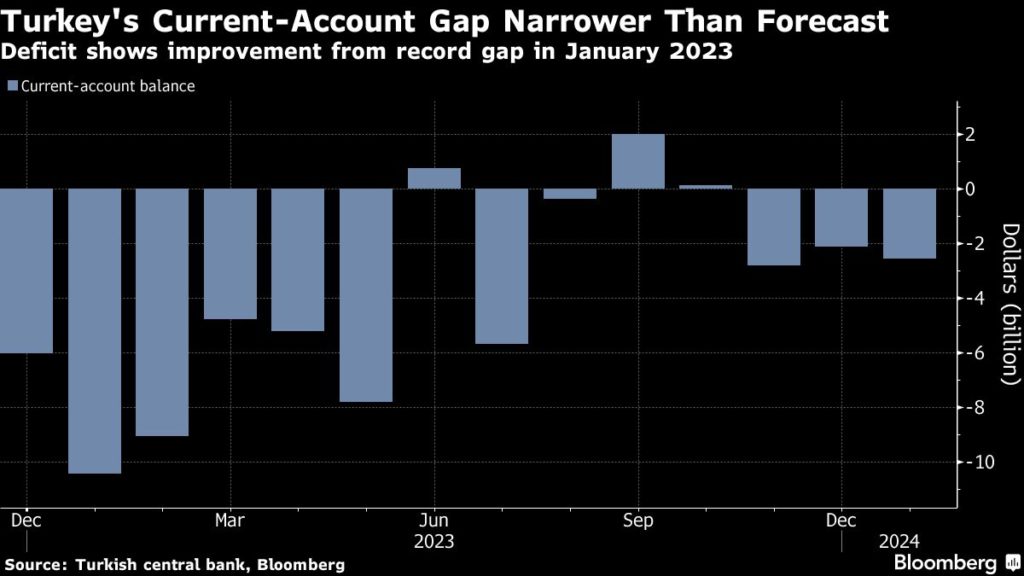Smallest Turkish gold imports since 2022 improve current account

Turkey imported the least amount of gold in nearly two years, helping to keep the current-account deficit narrower than expected.
Net bullion imports, which peaked at nearly $5 billion a year ago, declined for a fifth month to reach $936 million in January, according to balance-of-payments data published on Tuesday. The current account, a measure of trade and investment flows with the outside world, had a shortfall of $2.6 billion, slightly less than predicted by economists surveyed by Bloomberg.
The deficit for December was upwardly revised to $2.1 billion. Though the current account has been in the red for three straight months, the latest figure is a stark improvement from January 2023, when it posted a record gap of more than $10 billion.

Bullion purchases have long been a drag on Turkey’s current account as people looked to gold as a hedge against inflation when the central bank kept interest rates ultra-low as part of a push by President Recep Tayyip Erdogan to promote economic growth.
But the appeal of gold has been subsiding after an aggressive cycle of monetary tightening lifted rates on deposits at commercial banks and kept the lira more stable. The country has embraced more conventional policies after May elections last year, a shift that pursues goals including what policymakers call maintaining “a sustainable” current-account deficit.
The trade deficit narrowed to $4.4 billion in January, almost a third of what it was a year earlier.
Finance Minister Mehmet Simsek recently said changes in the composition of growth contributed to Turkey’s improving trade position. The central bank raised its key rate to 45% from 8.5% in eight straight meetings, helping cool domestic spending and lower demand for imports.
The finance minister expects the current-account deficit — which has long been a source of fragility for Turkey’s economy and put pressure on the lira — to narrow to an annualized $30 billion to $35 billion in the coming months.
(By Beril Akman)
More News
{{ commodity.name }}
{{ post.title }}
{{ post.date }}




Comments